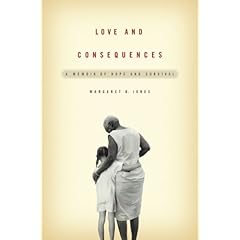With all the other writing I’m doing, I never have time to write reviews of the books I read. I will try to do better. Please note I’ve changed from four star reviews to five star reviews so they match up with my ratings at GoodReads. (And if you like books, get your butt over to goodreads.com, set up an account, and start sharing your thoughts about books you love and hate with friends. You can also see what books I’ve read so far this year, what I’m currently reading, and what’s on my shelf to read.)
The Road by Cormac McCarthy
Generally I find books that win prestigious prizes either 1) boring and/or 2) a bunch of literary drivel. The only reason I bothered to read Cormac McCarthy’s The Road (winner of the 2007 Pulitzer Prize for fiction) was because it came recommended by a friend whose opinion I trust.
I’m glad I did. This book had me riveted from beginning to end.
The book is about a father and young son who journey through a post-apocalyptic world (North America?) trying to survive in a world that is seemingly without plant or animal life of any kind. Cities are empty. Food is scarce. The only other people are those who are also trying to survive. The survivors they encounter will do anything to keep surviving.
Even without learning the names of a single character, where they are traveling to (the California coast?), and what caused the world as we know it to end (nuclear war?), McCarthy creates vivid portraits of two people trying to survive in a dangerous and dreary world. The father’s constant pursuit of finding a better place – one where they can survive – is driven by his love for his son and the hopes that his son can, one day, have a better life. In a world where everyone else has lost their humanity, the father does his best to keep some sort of civilized quality to their meager existence.
McCarthy’s writing is short and to the point but carries a strong poetic quality to it. He’s also able to paint a picture of a truly lifeless world in such a way that’s very haunting. Two months after I read it, I still think back to certain passages where he described the dead world and shudder. And even though the book paints a bleak portrait of humanity’s future, it does leave the reader with home that life will continue despite the awful world the characters find themselves in.
If you want a well-written, moving book without the literary pretense that comes with most award-winning books, then you’ll enjoy The Road.
Five stars (out of five) for a page-turning and unforgettable book.







 Looking northwest across the lake
Looking northwest across the lake Looking northest toward the mountains
Looking northest toward the mountains Looking southwest as the sun sets
Looking southwest as the sun sets